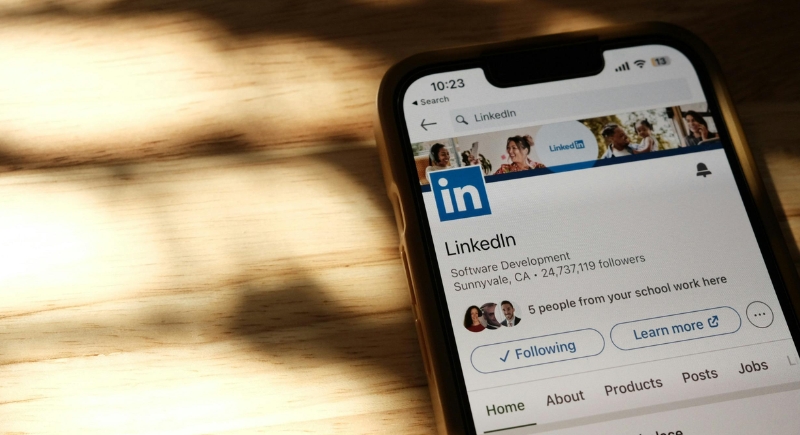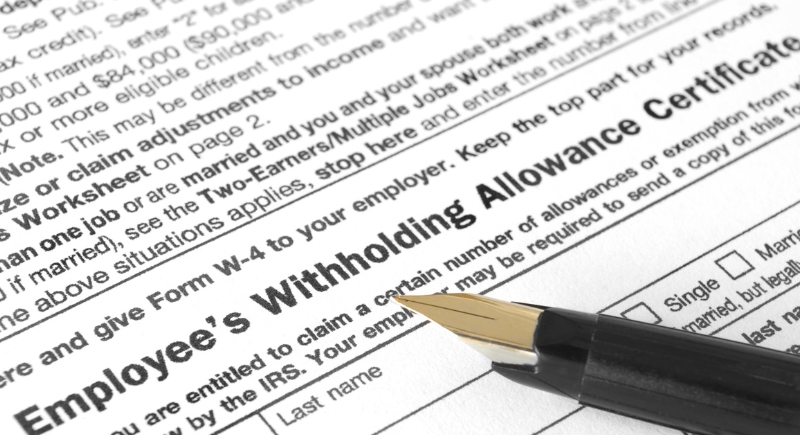Here’s How to Protect Your Wallet If You Worried About Losing Your Job
Even as markets perk up, job jitters haven’t exactly left the building. In fact, job insecurity is rattling workers across industries and income levels. If you are seeing layoffs looming around you or you’re just feeling the vibes shift at work, now’s the time to give your finances another thought.
Here are some smart preps that can lower stress and give you more control, no matter what happens next.
Prioritize Six Months of Essentials

Credit: Canva
Start with a clear-eyed estimate of your monthly must-haves, including housing, groceries, insurance, and debt payments. Eliminate all extras and automate a small transfer to a high-yield savings account each paycheck. Building a six-month cushion now matters more than ever, as the average unemployment spell has stretched past five months.
Trim Recurring Costs Before Urgency Hits

Credit: Getty Images
Here’s the thing about emergencies: they don’t wait for you to get organized. Scrub through your recurring expenses now by identifying streaming services you forgot existed, bloated cable packages, and ancient gym memberships. These are usually the largest levers you can pull to free up cash and stretch your emergency fund further.
Give Your LinkedIn a Little Love

Credit: pexels
Nobody enjoys updating their resume, but you know what’s worse? Doing it under duress at 2 a.m. Polish your LinkedIn. Add those wins you’ve been downplaying. Activate job alerts for roles you’d actually consider. And don’t wait to ask for recommendations.
Understand Unemployment Rules in Your State

Credit: Getty Images
States vary wildly in how they calculate payouts, what paperwork they require, and how quickly they process claims. Look up the specifics now and have your tax documents, pay stubs, and ID ready before you’re job hunting under pressure.
Don’t Leave Perks on the Table

Credit: Dragon Images
It’s excellent if you’re still clocking in. That means your health insurance is still active, your FSA is still spendable, and your 401(k) match might still be flowing. Use the perks while you can. Book that dental appointment, grab those new glasses, and max out any employer matches. Benefits don’t wait politely at the door after you’ve been shown out.
Build Small-Scale Income Streams

Credit: Getty Images
Don’t wait for a layoff to think about bringing in extra cash. Pick something small and doable, such as tutoring, selling a service, contract work, renting out your car, or a spare room. You don’t need to hit four figures for it to matter. A few hundred bucks a month can help cover essentials and keep your savings intact if things get tight.
Reconnect With Your Network Naturally

Credit: Getty Images
Think of your network like a garden. If you only show up when you need something, nothing’s going to grow. Take five minutes now and then to reply to someone’s post, send a quick note, or share something useful. By doing this, you can stay on their radar in a real way. Later, when you do need to reach out, the conversation won’t feel out of the blue.
Audit Your Budget With Honesty

Credit: pexels
This one’s surprisingly satisfying. Pull up your bank and credit card statements and go line by line. Odds are, you’ll find a few hundred dollars’ worth of “eh, I meant to cancel that” lurking in the shadows. Give every charge a job or cut it. Then talk with your partner or roommate about what spending can be paused if your paycheck is low.
Audit Your Budget With Honesty

Credit: Canva
Pull up your statements. See where your money’s actually going. You’ll probably find a few things to cut right away. Then take a hard look at your debt. What’s costing you the most? What’s due soon? Don’t wait until you’re behind. Call your lenders now, most are more flexible than people think, especially if you’re still current.
Plan for Your 401(K) Now, Not Later

Credit: Getty Images
If your job disappears, your 401(k) doesn’t. But what you can do with it depends on your plan. Some employers let you leave it parked, while others want it moved. And if you’re not vested in employer contributions yet, check those dates. Rolling over to an IRA might make sense, but the key here is knowing before you’re packing your desk.
Review Health Coverage Options Thoroughly

Credit: Canva
Losing job-based insurance can be one of the biggest financial risks. Understand COBRA rules, but also compare marketplace plans. If you’re married, consider joining your partner’s plan. Don’t go without coverage. Unexpected medical bills derail financial plans faster than nearly anything else.
Don’t Miss Out on Your Bonus

Credit: Getty Images
Before you quit or get pushed, look at the calendar. Bonuses, stock vesting, commissions, and other payouts often hinge on exact dates. Leaving a few days too early could cost you thousands. Check the fine print. If something big is about to hit your account, it might be worth sticking around a little longer.
Time Your Job Change Around Vesting Schedules

Credit: Canva
Leaving right before hitting a stock or retirement plan vesting date can cost you thousands. Many benefits become fully yours after a certain tenure. Even if you’re eager to leave, double-check what’s at stake. Delaying your departure by a month might be financially wiser than rushing out.
Check Your Tax Withholding Settings

Credit: Getty Images
If your income’s changing with a new job, side gigs, or fewer hours, it’s time to look at your tax setup. The wrong withholding can mean a nasty surprise come April. Don’t wait for a tax bill to tell you something’s off. Adjust now. The IRS has a free tool, or talk to someone who knows the ropes.
Meet With a Financial Planner, Not Just Google

Credit: Getty Images
You could Google your way through financial uncertainty, or you could talk to someone who sees the full picture. A one-time session with a financial planner can help you strategize beyond basic budgeting: equity plans, tax strategies, insurance decisions, even what not to touch.